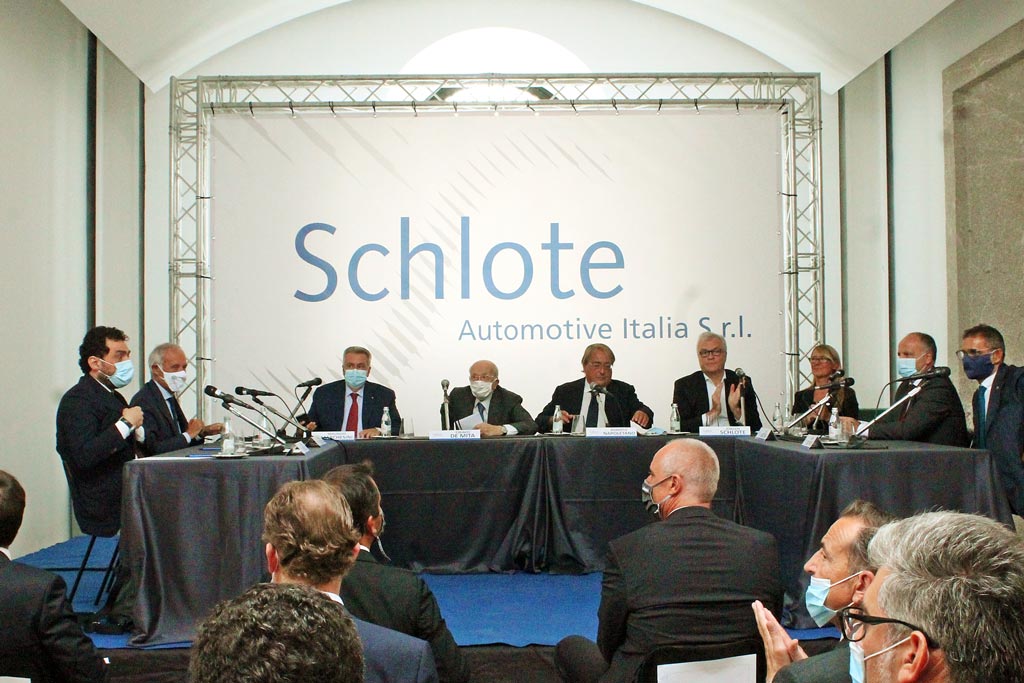
The RML Law Firm assists the parties in grounding a new italian-german joint venture that will bring european automotive excellence to irpinia
September 4, 2020As recently highlighted by Confindustria (the Confederation of Italian Industries), the sharp and widespread increases in energy and raw materials prices (e.g. natural gas +423% in 2021) are creating very serious problems for Italian industrial companies, which risk that their operating margins could be seriously compromised, considering the difficulty of passing on to end customers the higher production costs caused by the increase in commodity prices.
Unfortunately, the phenomenon is already very serious in all energy-intensive sectors (such as metallurgy or the production of cement and ceramics for the building industry), but it risks to become soon very difficult to manage also in the automotive sector, characterized, as it is well-known, by very important trade volumes between Italy and Germany.
At RML Law Firm we asked ourselves, therefore, how Italian industries could manage the current issues in connection with supplies to German companies as well as locally and, more in general, if and how price revision mechanisms could be introduced in contracts, either in force or to be concluded.
In this regard, it should be noted that German law, unlike Italian law, includes a specific rule that provides for an obligation to renegotiate prices at the request of the party that is no longer able to comply with the original contractual terms due to a change in the circumstances (including economic conditions) on which the contract itself was initially grounded: on the basis of this rule, therefore, an Italian supplier could request its German customer to increase the prices set out in the contract in order to “compensate”, at least in part, the significant increase in the costs of energy and/or other raw materials.
This regulation is set forth in §313 of the German BGB (German civil Code), according to which, if after the conclusion of the contract significant changes occur in certain circumstances underlying the contract, such that the parties would not have concluded the contract (or would have agreed on different terms) if they could have foreseen such changes, the party from whom compliance with the contract under its initial terms can no longer be expected may demand its amendment.
This rule has so far been applied only exceptionally, since the German Courts have correctly addressed with great caution the key point in the application of this rule, namely the delicate issue of understanding when the changed conditions affecting the synallagmatic contractual link are exceeding the normal entrepreneurial risk connected with an increase in prices or production costs. However, §313 BGB provides a clear legal basis for a renegotiation obligation, which could represent a valuable remedy available to the supplier who needs to face situations which are in fact unpredictable and sudden, such as those related to the described increase in the costs of raw materials and commodities.
In the German debate, therefore, the argument in favour of a wider use of this provision is gaining ground.
In Italian law, on the other hand, the obligation to renegotiate the price is a hypothesis that has not yet been pursued with reference to the increase in costs of raw materials and commodities, although on several occasions, during the course of the Covid-19 pandemic, our Judges have invoked this concept (in particular in the field of lease agreements) on the basis of Article 1467 of the Civil Code (according to which renegotiation represents the remedy to avoid the termination of the contract for supervening excessive costs connected thereto) and Article 1374 of the Civil Code (integration of the contract based on equity). Of course, a separate chapter should be dedicated to procurement contracts, where the revision of the price is instead expressly provided for by Art. 1664 of the Italian Civil Code.
In any case, finding a solution for contracts not including a price revision clause is complex and contentious, although certainly deserving a deeper analysis.
It is therefore advisable, considering the serious consequences of increasing energy and commodity prices, to address this issue since the contract negotiation phase.
As the German experience teaches us, it will be essential to include price adjustment clauses in the contracts to be concluded from now on, which, in order to be effective and concretely applicable, will have to be carefully drafted and negotiated: the drafting of such clauses, in fact, is particularly delicate, making it necessary, in the negotiation phase, to have greater transparency on the cost structure of the supplying company.
RML law firm is available to provide companies with the essential legal support on all the above issues, with particular attention to Italian companies having supply relationships with German customers.
Avv. Valentina Montanari
Avv. Paolo Righetti

